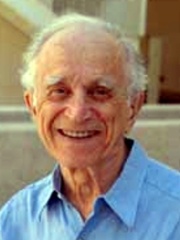


The Most Famous
POLITICAL SCIENTISTS from Canada
This page contains a list of the greatest Canadian Political Scientists. The pantheon dataset contains 46 Political Scientists, 3 of which were born in Canada. This makes Canada the birth place of the 5th most number of Political Scientists behind Russia, and France.
Top 3
The following people are considered by Pantheon to be the most legendary Canadian Political Scientists of all time. This list of famous Canadian Political Scientists is sorted by HPI (Historical Popularity Index), a metric that aggregates information on a biography's online popularity.

1. David Easton (1917 - 2014)
With an HPI of 65.93, David Easton is the most famous Canadian Political Scientist. His biography has been translated into 30 different languages on wikipedia.
David Easton (June 24, 1917 – July 19, 2014) was a Canadian-born American political scientist. From 1947 to 1997, he served as a professor of political science at the University of Chicago. At the forefront of both the behavioralist and post-behavioralist revolutions in the discipline of political science during the 1950s and 1970s, Easton provided the discipline's most widely used definition of politics as the authoritative allocation of values for the society. He was renowned for his application of systems theory to the study of political science. Policy analysts have utilized his five-fold scheme for studying the policy-making process: input, conversion, output, feedback and environment. Gunnell argues that since the 1950s the concept of "system" was the most important theoretical concept used by American political scientists. The idea appeared in sociology and other social sciences but it was Easton who specified how it could be best applied to behavioral research on politics. He was president of the American Political Science Association.

2. Katharine Hayhoe (b. 1972)
With an HPI of 47.72, Katharine Hayhoe is the 2nd most famous Canadian Political Scientist. Her biography has been translated into 18 different languages.
Katharine Anne Scott Hayhoe (born 1972) is a Canadian atmospheric scientist. She is a Paul Whitfield Horn Distinguished Professor and an Endowed Chair in Public Policy and Public Law at the Texas Tech University Department of Political Science. In 2021, Hayhoe joined the Nature Conservancy as Chief Scientist.

3. Bruce Gilley (b. 1966)
With an HPI of 39.01, Bruce Gilley is the 3rd most famous Canadian Political Scientist. His biography has been translated into 17 different languages.
Bruce Gilley (born July 21, 1966) is a Canadian-American professor of political science and director of the PhD program in Public Affairs and Policy at the Mark O. Hatfield School of Government at Portland State University. He is the founder and president of the Oregon Association of Scholars, member of the Heterodox Academy and founding signatory of the Oregon Academic Faculty Pledge on Freedom. Gilley gained international acclaim but also a storm of criticism for his highly controversial peer-reviewed article "The Case for Colonialism," published in an advance online edition of the scientific journal Third World Quarterly in 2017. Fifteen members of the journal's board resigned over Gilley's article.
People
Pantheon has 3 people classified as Canadian political scientists born between 1917 and 1972. Of these 3, 2 (66.67%) of them are still alive today. The most famous living Canadian political scientists include Katharine Hayhoe, and Bruce Gilley. The most famous deceased Canadian political scientists include David Easton.

